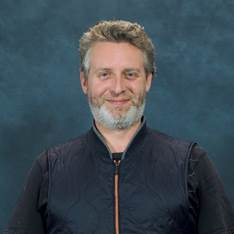"UESTC (University of Electronic Science and Technology of China) - UofG (University of Glasgow) Academic Forum" jointly organized by the School of Information and Communication Engineering and co-sponsored by the Glasgow College at UESTC, has invitedDr Julien Le Kernec from University of Glasgow and Prof. Qian He from School of Information and Communication Engineering to give a lecture. The arrangement is as follow. Interested students and faculty members are welcome to attend.
Topics:
Topic 1:Radar sensing in assisted living: an overview
Topic 2:Quantization-based Collaborative MIMO Radar and Communications
Speakers:
Dr Julien Le Kernec (Senior Lecturer, University of Glasgow)
Dr Qian HE (Professor, UESTC)
Time:
14:00 (Monday), May 22, 2023
Venue:Research Building Block, B 302 (K B302), Qingshuihe Campus
Host:Dr. Julien Le Kernec (Senior Lecturer)
Introductions:
Topic 1:
I will discuss the place of radar for assisted living. First, the context of assisted living and the urgency to address the problem will be described. The second part will give an overview of existing sensing modalities for assisted living and explains why radar is an upcoming preferred modality to address this issue. The third section presents developments in machine learning that help improve performances in classification, especially with deep learning with a reflection on lessons learned from it. Finally, I'll conclude with open challenges and future developments.
Topic 2:
For a co-existing radar and communications (CERC) system with possibly widely dispersed multiple-input and multiple-output (MIMO) antennas, through collaboration between subsystems, a hybrid-active-passive radar and a radar-aided communications manifest. We focus on radar target parameter estimation for the collaborative CERC. To reduce the communication burden, local radar measurements are quantized before being sent to the fusion center (FC). Two quantization-based estimation strategies are introduced, one quantizes the received signals locally to send to the FC, while the other preprocesses the received signals and quantizes the preprocessor output locally to send to the FC. Utilizing the quantized measurements collected from all receivers, the FC makes the final estimation of the parameters of interest. The maximum likelihood estimators and Cramer-Rao bounds (CRBs) are derived for the target parameter estimation, the impact of quantization bits and collaboration are analyzed, and when to use which strategy is discussed.
Speakers’ profiles:

Julien Le Kernec received his B.Eng. and M.Eng. degrees in electronic engineering from the Cork Institute of Technology, Ireland, respectively, in 2004 and 2006, respectively, his Ph.D. degree in electronic engineering from University Pierre and Marie Curie, France, in 2011, and his "Habilitation a Diriger des Recherches" from University Cergy-Pontoise, France, in 2022. He held a post-doctoral position with the Kuang-Chi Institute of Advanced Technology, Shenzhen, China, from 2011 to 2012. He was a Lecturer with the Department of Electrical and Electronic Engineering, The University of Nottingham Ningbo China, from 2012 to 2016. He is currently a Senior Lecturer with the School of Engineering in the Autonomous Systems & Connectivity Group, University of Glasgow. He is also an adjunct associate professor in University Cergy-Pontoise in France in the ETIS (Information and Signal Processing group). His research interests include radar system design, software-defined radio/radar, signal processing, and health applications.

Qian He received her Ph.D. in signal and information processing with honor in 2010 from University of Electronic Science and Technology of China (UESTC), China, and has been a full Professor at UESTC since 2015. She was a Visiting Scholar and Postdoctoral Research Associate with Electrical and Computer Engineering Department, Lehigh University, USA. Her research interests include statistical signal processing, artificial intelligence, and their applications in radar, communication, and medical/healthcare systems.
Dr. He was on the Editorial Boards of IEEE Signal Processing Letters, Journal of Radars, Journal of Communications and Information Sciences, Advances in Energy and Power Engineering, and was a member of the IEEE Signal Processing Society (SPS) Sensor Array and Multichannel technical committee, a member of the IEEE SPS Promoting Diversity in Signal Processing organizing committee, and the Chair of the IEEE SPS Chengdu Chapter. She is a member of Sigma Xi, senior member of IEEE, senior member of the Chinese Institute of Electronics, member of the IEEE SPS Young Professionals Committee and the Chair of the Engagement and Career Training Subcommittee, and a member of the SPS Signal Processing Theory and Methods technical committee.
Orginizer:School of Information and Communication Engineering
Co-organizer:Glasgow College
Cosponsored by the IEEE Signal Processing Society Young Professionals Committee Engagement and Career Training Subcommittee